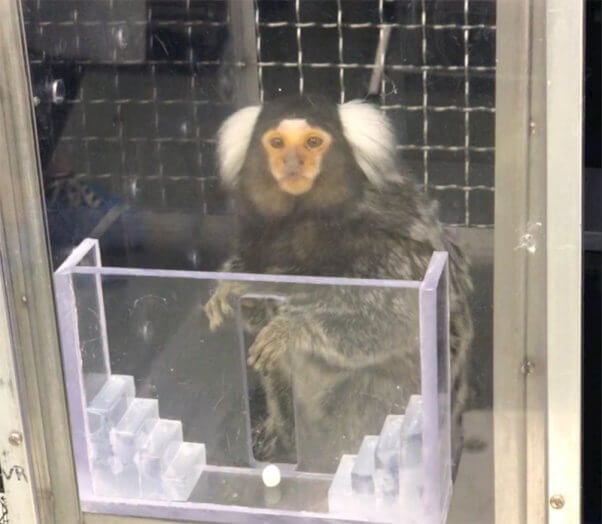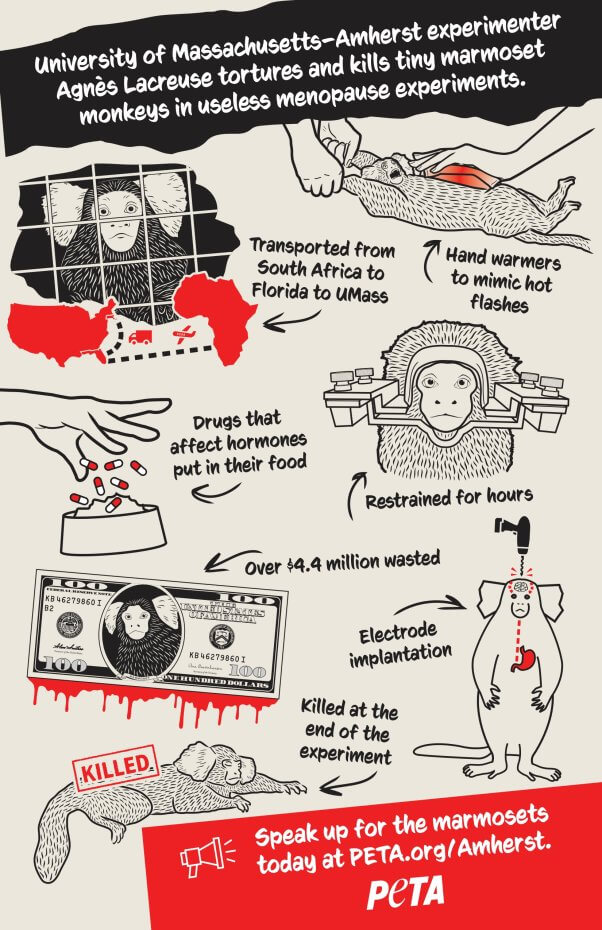Cruel and Pointless Experiments on Animals Worsen Gender Inequality
As we recognize International Women’s Day (March 8), we should also acknowledge the disparity in funding of research focused on women’s versus men’s health concerns.
A 2021 study in the Journal of Women’s Health backs up claims made in previous studies that “in nearly three-quarters of the cases where a disease afflicts primarily one gender, the funding pattern favors males.” This comes at the expense of women, contributing to a health-care gender gap extending well outside the laboratory.
For example, migraine and endometriosis are maladies affecting primarily women, according to a 2019 article published by the Society for Women’s Health Research. But migraine and headache disorders receive the lowest amount of federal funding from the National Institutes of Health (NIH) “when compared to conditions with the same level of disease burden,” the article says. And research into endometriosis garnered “just $7 million in NIH funding in fiscal year 2018, putting it near the very bottom of NIH’s 285 disease/research areas.”
Unfortunately, when the purse strings do open to fund women’s health issues, the money is often wasted on cruel, worthless experiments, such as the menopause studies on tiny marmoset monkeys at the University of Massachusetts–Amherst.

Marmosets do not experience menopause. So the experimenters manipulate the marmosets’ hormones with drugs, castrate the males and remove the uterus and ovaries from the females. And they put hand warmers on their bodies, ostensibly to mimic hot flashes.
But that’s not even the worst of it.
They zip-tie the marmosets into a restraining device to keep their heads entirely immobile, drill holes into their skulls and make incisions in their necks to expose the muscle below. Next, they implant electrodes in their scalps and necks and thread electrode leads from there down to their abdomens. In other experiments, they subject them to stressful social isolation tests and mimic sleep disruption by blasting them with loud noises every 15 minutes throughout the night. The experimenters keep the monkeys thirsty to ensure their cooperation in exchange for a sip of water in behavioral and cognitive tests, some of which are specifically designed to be stressful. When they’re finally finished with them, they kill them.

For this cruel farce, the experimenters have received more than $4 million in NIH funding. Sadly, that’s what passes for research into women’s health issues. Other examples abound.
NIH gave one experimenter $900,000 to implant steel pipes in monkeys’ heads to induce stress. The experimenter claimed he was studying the effects of stress on the menstrual cycle. The agency awarded $200,000 to an experimenter at a university in the Midwest to put pregnant rabbits on a treadmill to study the effects of exercise on blood flow. Another university experimenter received $1.6 million from NIH for a five-year study of the effects of inhalant drug abuse in pregnant rats on the behavior of their pups. And another received $200,000 from the agency to subject male monkeys to feminizing hormone therapy to claim to study increased HIV rates in transgender women. NIH has funded projects relating to eating disorders and postpartum depression in animals, consisting of nothing but restricting food rations even though it is well understood that complex psychosocial causes drive human eating disorders.

Ridiculous, cruel and ineffective animal experiments like those at University of Massachusetts Amherst and elsewhere syphon precious taxpayer dollars out of the already unjustly small pool of funding that should be supporting desperately needed research into improving the lives of half the human population.
What You Can Do
Please take a minute TODAY and TAKE ACTION to urge UMass to stop Lacreuse’s preposterous experiments on marmosets.
Written by Sheryl Becker.

